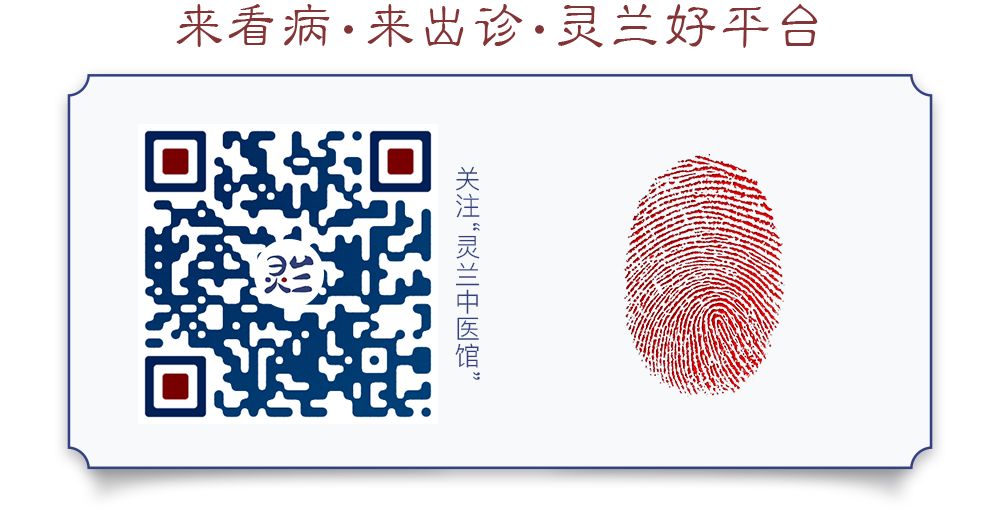
TCM Book Club Issue 1873
Daily updates to accompany the growth of TCM practitioners
IIntroduction:Diarrhea, when prolonged, often indicates a significant possibility of deficiency syndrome. However, in clinical practice, one should not solely focus on deficiency, as chronic illness does not always equate to deficiency. The author has accumulated several clinical cases in this regard and summarized four phrases regarding the suspicion of deficiency and excess, which hold clinical value for reference by fellow practitioners. (Editor: Ju Ye)

Clinical Insights on Chronic Diarrhea with Suspected Deficiency and Excess
Author: Ye Yifeng
In clinical practice, chronic diarrhea often presents with symptoms that suggest a suspicion of deficiency and excess. If not carefully examined, it can lead to misdiagnosis and ineffective treatment, resulting in prolonged illness or worsening conditions. I have compiled some data from over forty years of clinical experience, which I present here for the reference of my colleagues.
1. Symptoms resembling damp-heat retention, but actually due to kidney yang deficiency
With spleen yang deficiency, the transformation and transportation functions are impaired, presenting with increased frequency of bowel movements, loose stools, borborygmi, fever, thirst, fatigue, poor appetite, abdominal distension, a white-yellow tongue coating, and a large, forceful pulse. This can easily be misdiagnosed as damp-heat retention in the intestines, leading to the administration of bitter, cold, and damp-drying herbs.
However, upon closer examination, although the bowel movements are frequent, the anus is not red, the stools are loose without mucus, and despite the fever, there is profuse sweating, cold extremities, and a preference for warm drinks. After eating, there is abdominal distension, the tongue coating is white-yellow but not greasy or dry, and the tongue body is pale. The pulse, although large, is weak upon palpation, and the urine is clear, which can aid in differentiation.
Treatment should focus on warming the middle and supporting yang, using herbs such as Dang Shen (Codonopsis), Bai Zhu (White Atractylodes), Zhi Fu Zi (Processed Aconite), Gan Cao (Licorice), Rou Dou Kou (Nutmeg), and Bu Gu Zhi (Psoralea). It is crucial to avoid indiscriminately using bitter, cold, and damp-drying herbs, as well as being cautious with sweet, warming, and greasy substances.
-
Case 1
Chen, male, 51 years old, first diagnosed on March 6, 1975. He had diarrhea for over a year, seeking treatment everywhere, repeatedly taking bitter, cold, and damp-drying herbs without effect. A certain hospital diagnosed him with chronic enteritis and he was hospitalized for over a month. His condition improved somewhat, but his stools remained unformed. Recently, he self-medicated with bitter tea, and his condition worsened, leading him to seek further treatment.
He reported having 5-6 bowel movements daily, with loose stools, borborygmi, poor appetite, abdominal distension after eating, fever with profuse sweating, cold extremities, a temperature of 38°C, thirst with a preference for warm drinks, clear urine, a pale complexion, and fatigue. The tongue was pale with a white-yellow coating, and the pulse was large but weak. The diagnosis was spleen deficiency with internal cold and floating deficiency yang. The treatment was to warm the middle and support yang, with a modified Fu Zi Li Zhong Tang (Aconite Decoction). The prescription was:
Dang Shen (Codonopsis) (added separately), Bai Zhu (White Atractylodes), Gan Jiang (Dried Ginger), Zhi Fu Zi (Processed Aconite), Gan Cao (Licorice), Rou Dou Kou (Nutmeg), and Wu Wei Zi (Schisandra) each 10 grams; Calcined Dragon Bone and Calcined Oyster Shell each 30 grams. Decoction for oral administration, one dose daily.
After three doses, the fever subsided, sweating stopped, the extremities warmed, and the stools became thicker. The tongue coating was thin and white, the pulse was harmonious, and after continuing with 5 more doses, all symptoms were resolved. He then adjusted the original formula for a month and fully recovered.
2. Symptoms resembling damp-heat obstruction, but actually due to spleen yin deficiency
Spleen yin deficiency leads to gastrointestinal dysfunction, presenting with increased frequency of bowel movements, loose stools with small volume, diarrhea that is not smooth, irritability, thirst, poor appetite, abdominal distension, a red tongue with a thin yellow coating, and a thin pulse. This can easily be misdiagnosed as damp-heat obstruction, leading to the use of bitter, cold, and damp-drying herbs.
However, upon careful examination, the bowel movements are frequent but the anus is neither red nor swollen, the stools are loose without mucus, and there is a feeling of incomplete evacuation. The irritability is more pronounced in the evening or at night, the mouth is dry but not thirsty, and there is abdominal distension after eating. The tongue coating is yellow but not greasy, which can aid in differentiation. Treatment should focus on nourishing spleen yin, using herbs such as Bei Sha Shen (North American Ginseng), Huaishan (Chinese Yam), Ji Nei Jin (Chicken Gizzard Membrane), Bai Bian Dou (Lima Bean), Jin Shi Hu (Dendrobium), Ming Yu Zhu (Lily Bulb), Sheng Gu Ya (Barley Sprout), Xuan Mu Guo (Carambola), and Wu Mei (Mume Fruit). It is important to avoid using bitter, cold, and damp-drying herbs, as well as tonics that strengthen the spleen and drain dampness.
-
Case 2
Li, female, 42 years old. First diagnosed on September 16, 1984. She had diarrhea for over eight months, repeatedly taking bitter, cold, and damp-drying herbs without effect, and switched to tonics for the spleen and dampness without success, later referred to me.
Upon examination, she had 3-4 bowel movements daily, with small volume and loose stools, incomplete evacuation, poor appetite, dry throat, little drinking, abdominal distension after eating, and intermittent irritability, especially at night. Her urine was short and yellow, complexion pale, with redness on the cheeks in the afternoon, a red tongue with a thin yellow dry coating, and a thin rapid pulse. The diagnosis was spleen yin deficiency with loss of intestinal control, and treatment should focus on nourishing spleen yin and regulating the intestines. The prescription was:
Huaishan (Chinese Yam) 30 grams, Bei Sha Shen (North American Ginseng), Bai Bian Dou (Lima Bean), and Sheng Di Huang (Rehmannia) each 15 grams; Sheng Bai Zhu (Fresh White Atractylodes), Ming Yu Zhu (Lily Bulb), Xuan Mu Guo (Carambola), Sheng Gu Ya (Barley Sprout), Mai Dong (Ophiopogon), and Wu Mei (Mume Fruit) each 10 grams. Decoction for oral administration, one dose daily.
After five doses, her condition improved, with reduced bowel movements, increased urine output, moist mouth, and improved appetite. After continuing with 15 more doses, she was cured.
3. Symptoms resembling long-term spleen deficiency, but actually due to excess pathogenic accumulation
Chronic diarrhea, persisting for a long time, presents with a weak physique, fatigue, low energy, cold extremities, lack of appetite, abdominal pain with diarrhea, a thick white tongue coating, and a thin pulse. This resembles the appearance of long-term spleen deficiency. However, although the stools are loose, there is often abdominal distension and pain before bowel movements, which significantly alleviates after defecation. The tongue coating is thick and turbid, and the pulse, although thin, is slippery and forceful, indicating the presence of pathogenic accumulation.
This aligns with the ancient saying, “A large excess can appear weak,” and one need not worry that prolonged illness indicates deficiency. Based on differentiation, one can boldly use methods to “unblock the bowels and guide out stagnation” with herbs that promote bowel movement and eliminate stagnation, allowing the pathogenic factors to be expelled and the body’s normal function to gradually recover. It is crucial to avoid the indiscriminate use of tonics that obstruct the pathogenic factors.
-
Case 3
Bao, male, 38 years old, first diagnosed on October 28, 1983. He had diarrhea for over a year, with 3-4 bowel movements daily, experiencing abdominal pain before bowel movements, which significantly alleviated after defecation. He had sought treatment in many places, using methods to harmonize the liver and spleen, tonify the spleen, and regulate qi without effect. A certain hospital diagnosed him with chronic colitis, and treatments with antibiotics and anti-inflammatory infusions, as well as gentamicin enemas, showed no significant results, raising concerns of cancer. Consequently, he became increasingly emaciated, with low spirits, cold intolerance, cold extremities, fatigue, and poor appetite, later referred to me for further treatment.
Upon examination, he appeared dark and sluggish, with a dry mouth, a red tongue with a thick coating, and a thin, slippery, forceful pulse. The diagnosis was intestinal stagnation with damage to the spirit, leading to a syndrome of excess pathogenic factors and deficiency of the right qi. The treatment should focus on unblocking the bowels and guiding out stagnation. However, at this time, the right qi was severely damaged, raising concerns that it might not be able to withstand the expulsion of pathogenic factors. Yet, if the accumulation was not resolved, the spirit and body could not recover. After careful consideration, I prescribed the following:
Mu Xiang Bing Lang Wan (Aucklandia and Areca Nut Pill) 30 grams, Dang Shen (Codonopsis) 15 grams, Duan Fu Zi (Processed Aconite) 10 grams. Instructed to first swallow the Mu Xiang Bing Lang Wan, and two hours later take the decoction of Dang Shen and Fu Zi. This approach attacks the pathogenic factors without harming the right qi, supports the right qi without obstructing the pathogenic factors, achieving a dual benefit.
After taking the medicine, he had two bowel movements, with a large volume of stools resembling sauce residue, and his spirits improved. Subsequently, the abdominal pain and diarrhea disappeared, and after taking tonics to boost qi and strengthen the spleen for a month, he fully recovered.
4. Symptoms indicating both yin and yang deficiency, but actually due to intestinal stasis
Chronic diarrhea, unresponsive to treatment, presents with both physical and mental decline, spontaneous sweating, aversion to wind, cold extremities, night fever with delirium, or irritability, thirst with poor appetite, persistent abdominal pain, and loose stools, with a thin tongue coating and a thin pulse, indicating both yin and yang deficiency.
However, the night fever and delirium, as well as irritability, are typically present at night and subside by morning. Although there is thirst, there is no desire to drink, and the abdominal pain is persistent with a distinct point of tenderness that does not alleviate after defecation. The tongue may appear purplish or have petechiae, indicating blood stasis.
This indicates intestinal stasis, or prolonged pain leading to stasis, and one need not worry that prolonged illness indicates deficiency.
Based on differentiation, one can confidently add herbs that invigorate blood circulation, resolve stasis, and relieve pain, such as San Leng (Sparganium), E Zhu (Curcuma), Dang Gui (Angelica), Dan Shen (Salvia), Hong Hua (Safflower), Ru Xiang (Frankincense), Mo Yao (Myrrh), Tao Ren (Peach Kernel), and Di Bie Chong (Earthworm). Once the blood stasis is resolved, the diarrhea will improve, and the physical and mental state will gradually recover. It is crucial to avoid solely using tonics or indiscriminately applying astringent herbs.
-
Case 4
Zhou, female, 35 years old, first diagnosed on March 4, 1986. She had abdominal pain and diarrhea for three years, with repeated ineffective treatments. In the past three months, she experienced increased spontaneous sweating, aversion to wind, cold extremities, night fever with delirium, and the fever subsided after midnight. She had a dry mouth with no desire to drink, poor appetite, and her physique was declining, with worsening spirits. A certain physician, seeing her condition, mistakenly prescribed tonics for yin and yang, and herbs to clear damp-heat, using a modified Wu Mei Wan, which exacerbated her condition, leading to more severe abdominal pain and diarrhea, prompting her to seek further treatment.
In addition to the aforementioned symptoms, she had persistent abdominal pain, with 6-7 loose stools daily, and the pain did not alleviate after defecation. Upon palpation, there was a distinct point of tenderness to the left of the navel, and her complexion was pale. The tongue was purplish with a moist white coating, and the pulse was thin and choppy. The diagnosis was spleen yang deficiency with intestinal stasis. The treatment should focus on warming the middle, supporting yang, invigorating blood, resolving stasis, and relieving pain, using a modified Li Zhong Tang (Regulating the Middle Decoction) combined with Huo Luo Xiao Ling Dan (Invigorating Blood and Unblocking Collaterals Pill). The prescription was:
Dan Shen (Salvia), Dang Gui (Angelica), Zhi Ru Xiang (Processed Frankincense), Zhi Mo Yao (Processed Myrrh), San Leng (Sparganium), and E Zhu (Curcuma) each 10 grams; Dang Shen (Codonopsis) 30 grams, Bai Zhu (White Atractylodes) and Gan Jiang (Dried Ginger) each 15 grams; Xi Xin (Asarum) and Gan Cao (Licorice) each 5 grams; Tian San Qi (Notoginseng) powder (to be swallowed) 3 grams.
This formula combines warming the middle and resolving stasis, supporting the right qi while expelling the pathogenic factors. After taking five doses, all symptoms were resolved, the abdominal pain disappeared, and the diarrhea was cured. She continued with tonics to strengthen the spleen and nourish the blood for a month, achieving full recovery.
Recommended Reading
Diarrhea for 5 months: What modern medicine has concealed?
Xiong Jibai: I believe that when it comes to diarrhea, these points must be asked.
|
I Copyright Statement
I Submission Email [email protected] |


In closing: The WeChat version has been updated again. It is disheartening to see the hard work of our editors submerged in a chaotic message list. We sincerely invite readers to add the TCM Book Club to their starred or pinned list; the operation is simple and only requires three steps:

